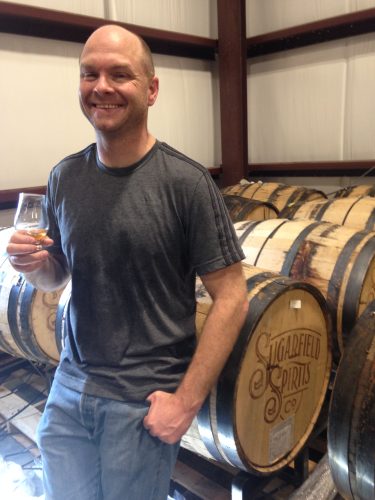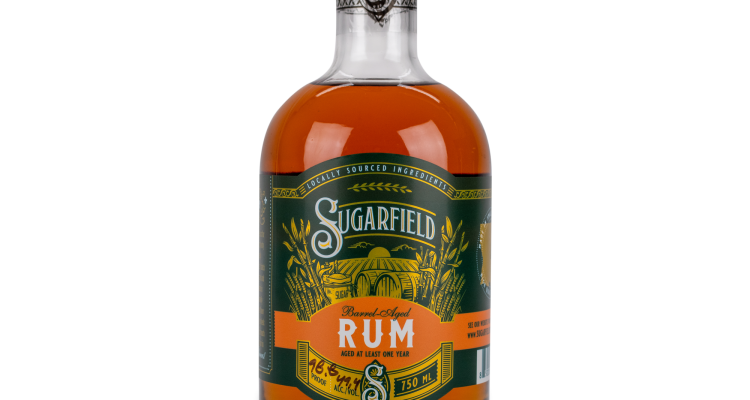Can you think about spirits production the same way you think about wines – with terroir and everything?
The other night, I met an interesting guy who thinks so. Thomas Soltau, the Louisiana native who founded Sugarfield Spirits, believes “you must have the science and the art” when creating spirits. He ponders blending the way his artist mother uses color and shape. He, himself, is a doctor who studied microbiology and worked in chemical engineering before going to medical school. Now he finds himself transitioning to full-time distilling.
Somewhere along this path, he and his family also established a winery and cidery. Knowing that, it makes sense that Soltau begins his journey to making rum by examining the different varieties of local sugar cane he distills for his spirits. Correction: first he acknowledges that rum production was historically associated with the harshest conditions of slavery in the Caribbean.
Today, Louisiana is the biggest sugar producing state in the US, says Soltau. Many small farmers and cooperatives grow sugar cane, which is also the largest crop in Louisiana. Soltau’s location in Gonzales LA allows him to deal directly with suppliers in Assumption Parrish, where he can discuss the different varieties of sugar cane, which create very different distilled products – the same way winemakers in French wine region produce recognizably different wines from adjacent vineyards, he points out.
Though Soltau makes different types of spirits, in this conversation, mostly we talked about rum. He uses local cane sugar, along with local blackstrap molasses, which is an extract of the sugar production process. He also uses different types of yeast for fermentation at different times of the sugar production year, which in Louisiana ranges from late September to early January.
For blending and ageing his rums, Soltau is excited to have many different types of barrels to work with, including new charred, used Bourbon, red and white Port, Madeira and Cognac. The Louisiana heat creates a climate which is very good for extracting flavors from the barrels, Soltau says.
In the future, Soltau is planning to do a six-varietal release of rums so we can experience the differences, ourselves. It’s a challenge – and it could actually happen, with Soltau driving it. With his products available in Louisiana and online through BigThirst.com, he already produces fifty different types of spirits.
His newest release is a single Port barrel-aged 111-proof rum. Unlike other spirits producers who use Port barrels only for finishing, Soltau puts his rum in the Port barrels for the entire three years of their ageing. This results in a woody, buttery spirit, which turns to pure butterscotch when chilled, with a long finish including hints of dried cherries and raisins.


